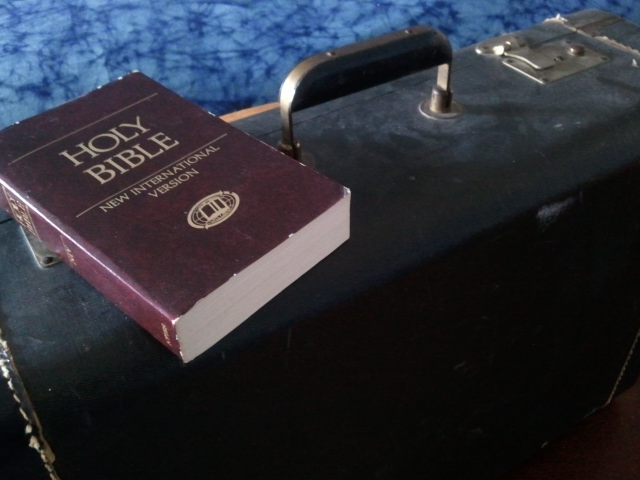Today on the feast of Holy Innocents, I commend to your reading a beautiful post by Eleanor Parker, Clerk of Oxford. You’re likely familiar with Coventry Carol which we sing on this day. Parker expands the resonance of that song wonderfully by showing us the tradition to which it belongs.
She writes, “there are in fact a considerable number of medieval lullabies which share the mood of the Coventry Carol: somewhere between lullaby and lament, full of melancholy and pity for the child being comforted, whether it’s Herod’s victims, the Christ-child, or any human baby born into a weeping world.” Here’s just one stanza of such a lullaby: “Lullay, lullay, little child, child, rest thee a throwe.”
Child, it is a weeping world that thou art comen in;
Thy pour rags prove that well, thy bed made in the bin; [manger]
Cold and hunger thou most endure, as one begot in sin,
And after die upon the tree for love of all mankyn. [mankind]
Lullay, lullay, little child, no wonder that thou cry;
Thou art come among those who shall cause thee to die.
So many thoughts crowd my mind as I meditate on the weeping Christ Child being comforted by his mother. I’m glad that Jesus was not betrayed by family, though he would speak of it. It seems a mercy granted to him and also a truth revealed–a bond of love that survives the crush of a sinful world.
I think about what Parker describes as “the crying child, innocent and uncomprehending, who weeps for no reason – and yet has a reason to weep, though he doesn’t know it, because of the world he has been born into.” I think all the creatures of this world who suffer and do not know why–children, animals, the disabled.
I’m reminded of the Hopkins’ poem “Spring and Fall”
I think that Christ must weep because of the world and for the world; for himself and for us. And I think that compassion, like innocence, is a mystery in a weeping world.



